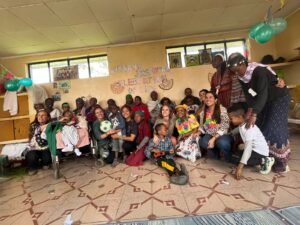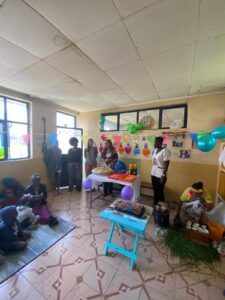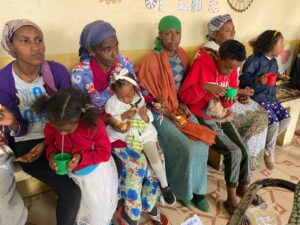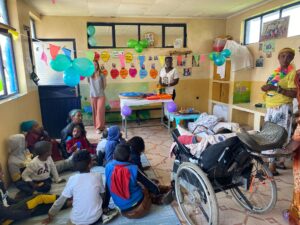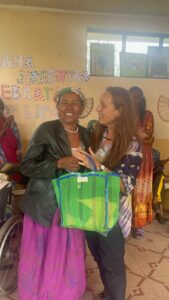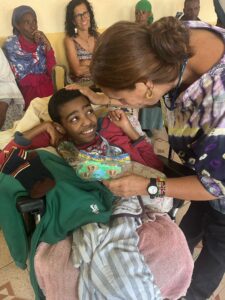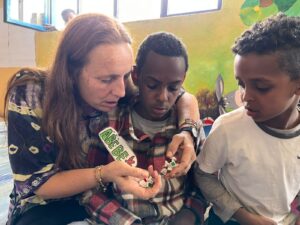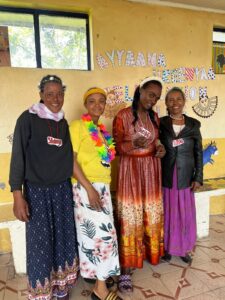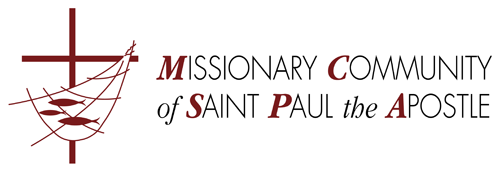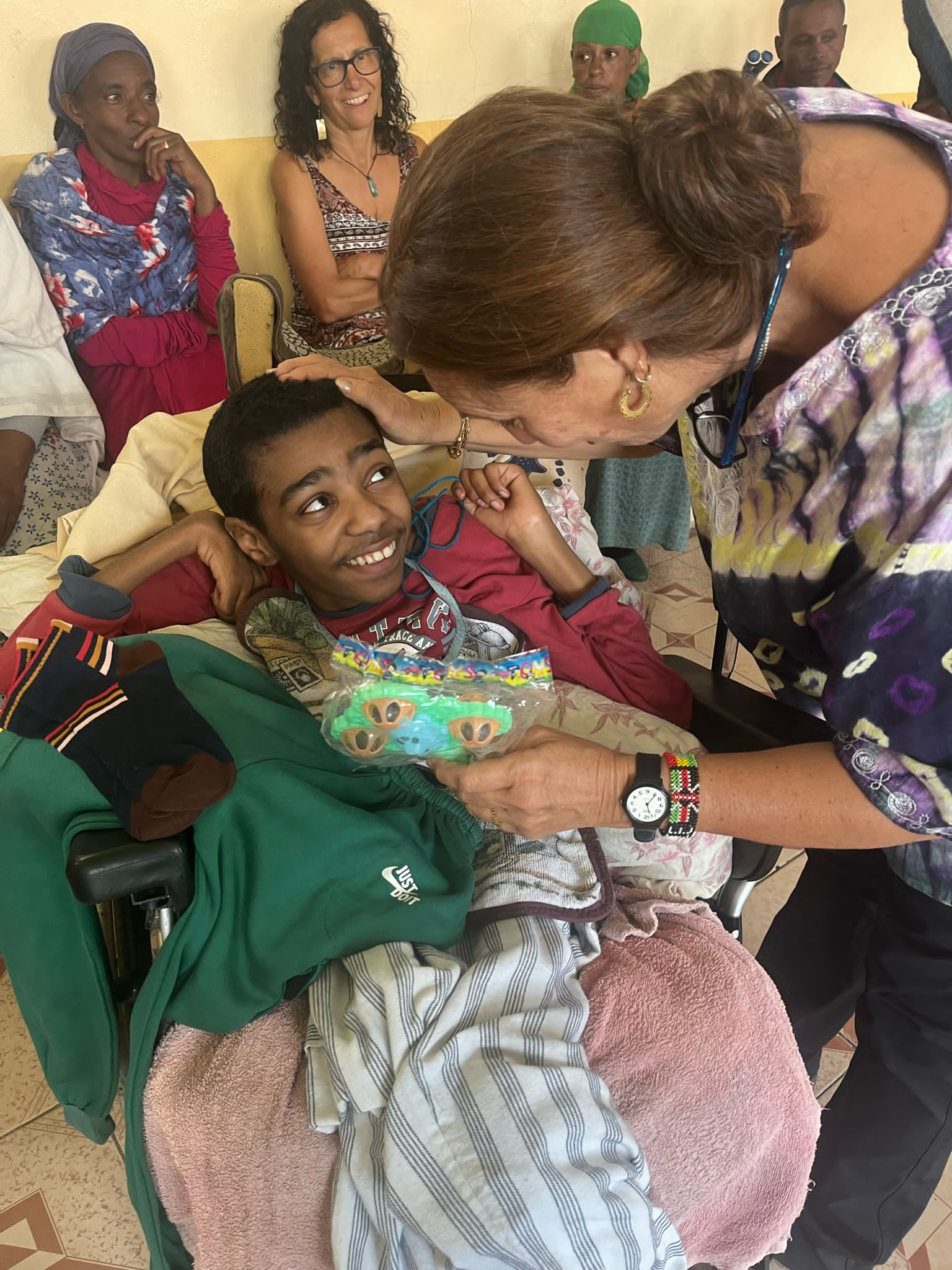Today, March 05, we had a grand celebration at the Children’s Special Education Room at Muketuri. The 9 special-needs children, together with their parents, teachers, volunteers and missionaries, celebrated the birthday of all the children with a huge cake topped with candles, and a large typical Ethiopian bread with presents for all the children and teachers.
This “Special Room” started 12 years ago in order to overcome the tremendous challenge for persons with slower learning capacities who are stigmatised in their society. It all began when we first encountered Workine and Tigist, two children paralysed with leukodystrophy degeneration and hidden inside their homesteads, severely malnourished. It took much effort on our part to convince their parents that their children’s condition was neither a punishment nor a curse. At first, it was difficult to find a person to work with them but we eventually found Aberash, a loving mother who had gone through very much with the sickness of her own child Yohanes.
Soon, more children came and more women were accepted to work at the “Special Room”. Though they had little studies, these women learned a lot from volunteers coming from Chile and Spain: professionals, psychologists, therapists etc.
Today 9 children and 4 teachers are stationed at the Room: children with Down’s Syndrome, autism, hemiparesis … all of them receiving medical care, nutrition and therapy. Last year we built a physiotherapy room, where each child has his or her own PT material to improve his or her capacities.
Recently the parents of the children had the opportunity to meet a Spanish mother of a child with autism; the impact of sharing experiences and feelings proved very supportive and moving.
Now, after all these years, the people of Muketuri know that at the St. Joseph Mother and Child Centre, there are special-needs children who at one time were kept from public view and whom no one wished to talk about. Now all the children at the nursery know and play with these children, some of whom cannot walk or talk, while some make “strange” movements, but they all laugh and play together as children do. These “special-needs children” are considered human beings like everyone else, and while their condition remains a mystery, they are accepted and their families no longer reject them.
It has been a long and difficult journey, and while it continues to be challenging still, these children have grown; some are already teenagers. Their presence forms an integral part of the Mission, making the latter a concrete sign of an option for welcoming the most vulnerable in our midst.
By Lourdes Larruy, MCSPA
Muketuri Mission, Ethiopia
